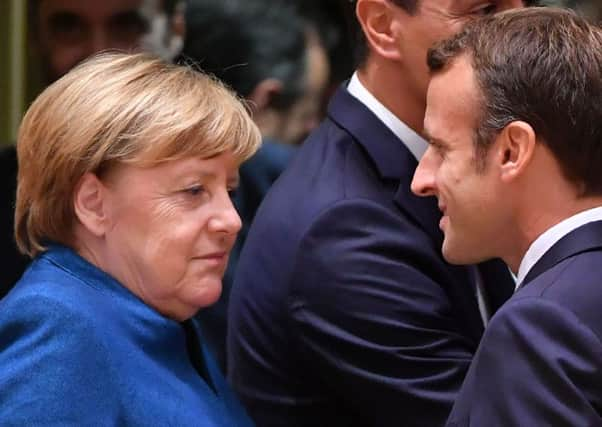'˜Why German Chancellor Angela Merkel had to announce end of career'


Stable and secure, but also pretty boring – that’s how you could have described German politics for a long time.
That time is undeniably gone. Today, Chancellor Angela Merkel signalled the end of an era – the longest-serving European head of government declared that she would step down as party leader of the Christian Democratic Union (CDU), following heavy losses for her party in a regional election on Sunday in the federal state of Hesse. She also announced she would not pursue another term as Chancellor after her current mandate finishes in 2021, and would not pursue a political career in the European Union.
Advertisement
Hide AdAdvertisement
Hide AdThe German political landscape had already changed last year after the general elections in September when the oh-so-stable Germany saw the far-right party AfD enter the national parliament, the Bundestag, and witnessed coalition talks that failed after four weeks of negotiations, then had to wait months for a new government to form.
To see Merkel step down now from party leadership is a turning point, but it might just be the best for her party. She had been leader of the CDU for a whopping 18 years, Chancellor for 13 years and always emphasised the importance of holding both of those jobs in her hands. But by stepping down, she can now initiate the renewal her party so badly needs.
Past regional election results in Hesse and in Bavaria have seen the conservative CDU and their Bavaria-only counterpart, the CSU, lose voters. The elections have been closely observed because they have been seen as pivotal for the future of the government.
Merkel herself called the results in Hesse “acutely disappointing and bitter”. The CDU is now at only 27 per cent in Hesse, down 11,3 percentage points since the last elections. Their coalition partner, the SPD, also suffered grave losses.
The outcome follows a summer of political dissent in Germany, with Merkel’s Bavarian interior minister Horst Seehofer (CSU) picking open fights with the Chancellor over migration policies, leaving the government in a limbo for weeks.
The behaviour of one of Germany’s most senior Bavarian politicians – he even announced he would leave office more than once, without following through – seemed erratic to many, but Seehofer’s deliberate provocations also seemed to show Merkel’s dwindling political power.
Many Germans saw the government as non-functioning and chaotic. That’s why Merkel now had to take some of the responsibility for her party’s losses in Hesse. She took some of the blame, talking about the effect of “the negative influence of national politics“ on local election results.
It would have been seen as escapist and arrogant had she decided to not draw such conclusions from the election results. Her decision to herald the end of her career is a wise one, leaving her rebellious opponent Seehofer looking like the unteachable troublemaker he has chosen to become.
